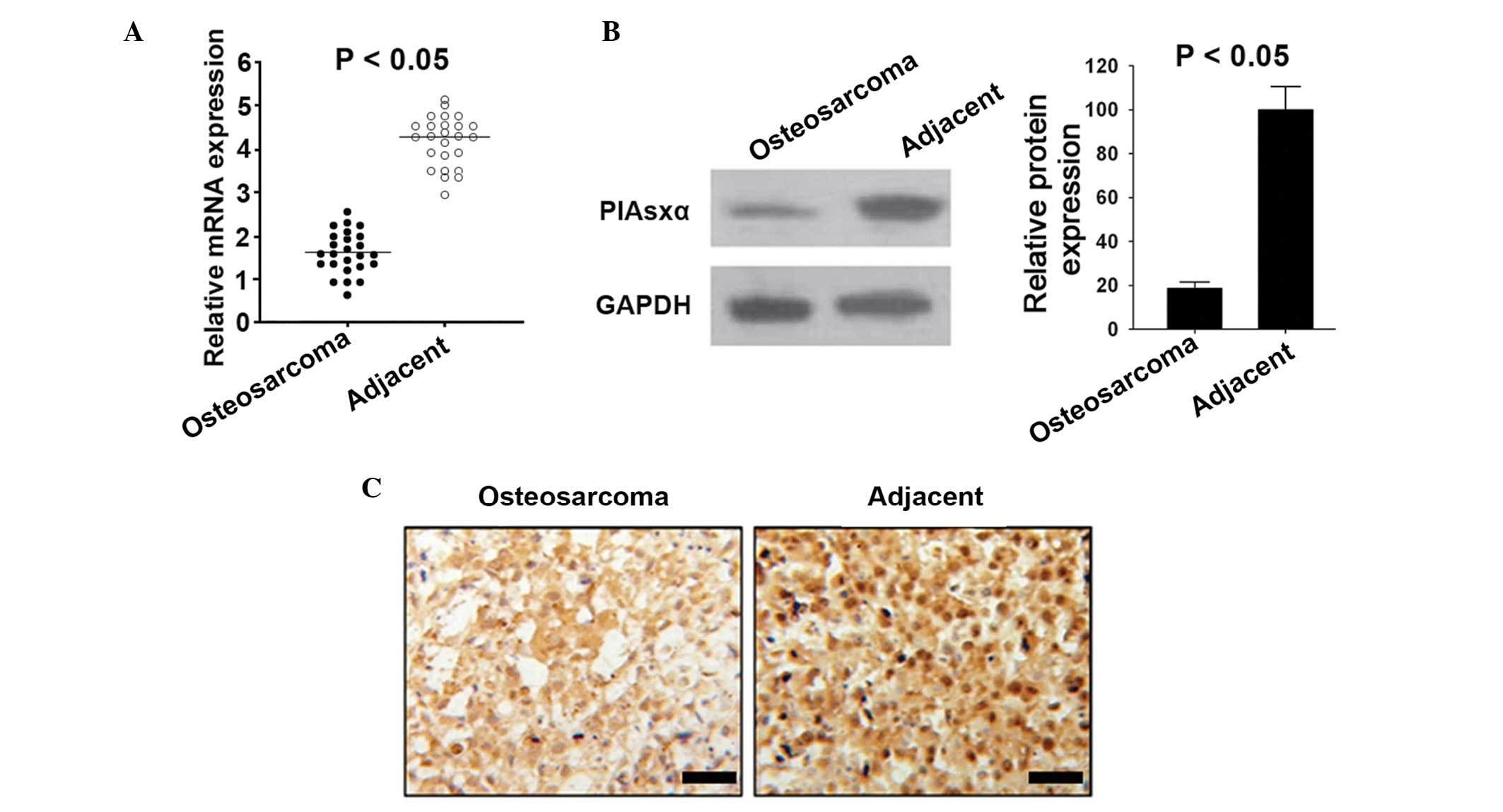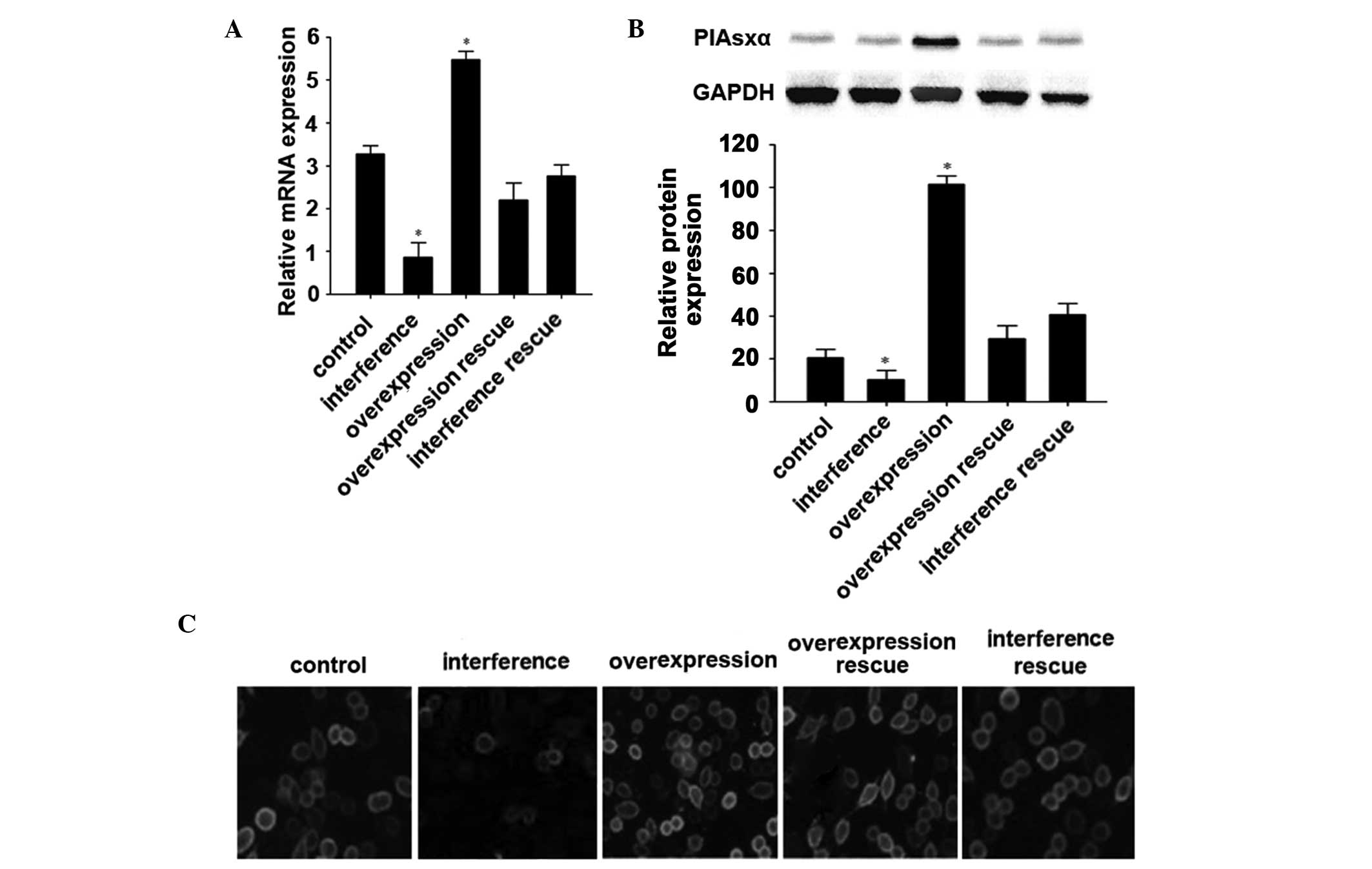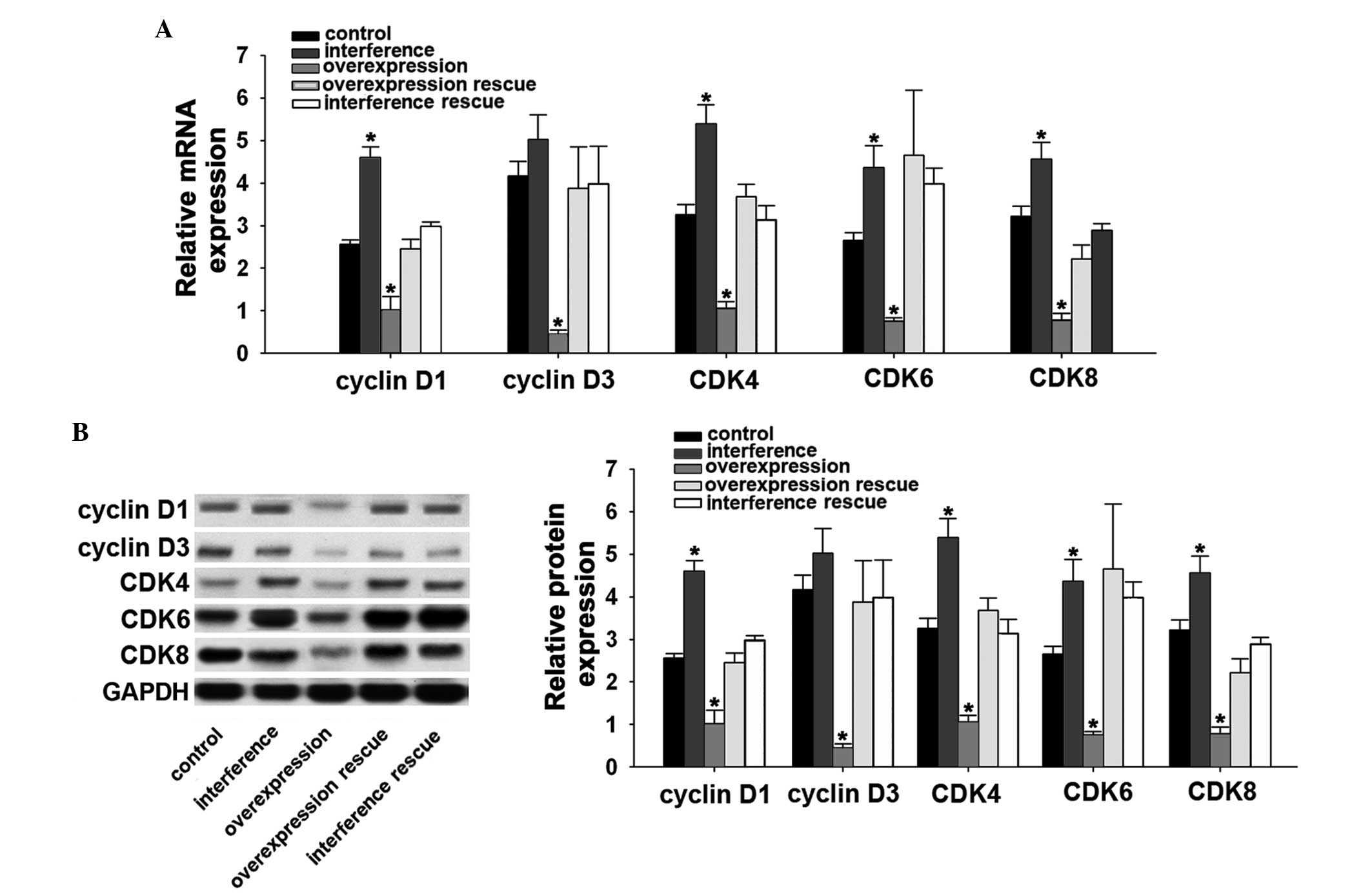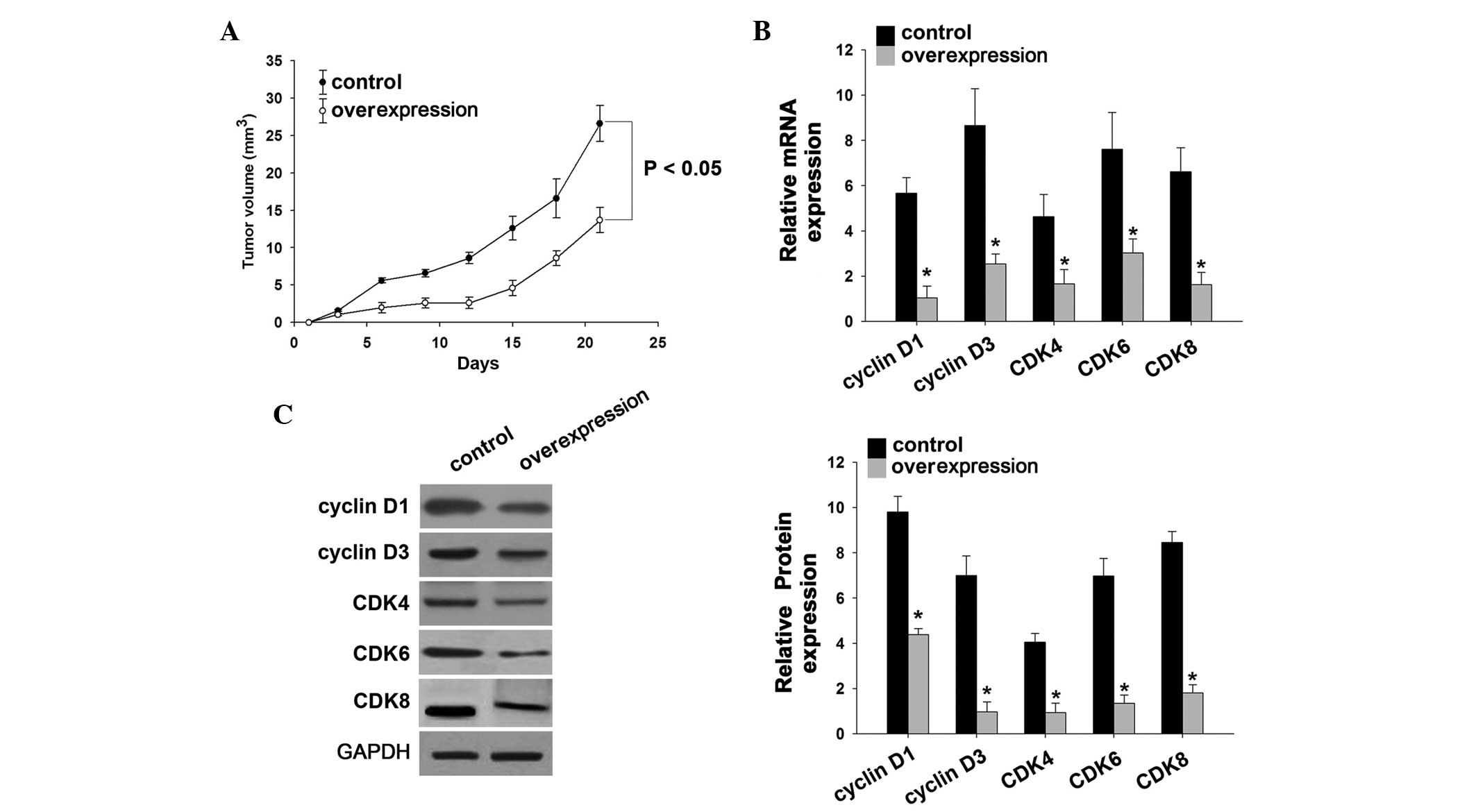|
1
|
Geiss-Friedlander R and Melchior F:
Concepts in sumoylation: A decade on. Nat Rev Mol Cell Biol.
8:947–956. 2007. View
Article : Google Scholar : PubMed/NCBI
|
|
2
|
Yeh ET: SUMOylation and De-SUMOylation:
Wrestling with life's processes. J Biol Chem. 284:8223–8227. 2009.
View Article : Google Scholar :
|
|
3
|
Saitoh H and Hinchey J: Functional
heterogeneity of small ubiquitin-related protein modifiers SUMO-1
versus SUMO-2/3. J Biol Chem. 275:6252–6258. 2000. View Article : Google Scholar : PubMed/NCBI
|
|
4
|
Johnson ES: Protein modification by SUMO.
Annu Rev Biochem. 73:355–382. 2004. View Article : Google Scholar : PubMed/NCBI
|
|
5
|
Owerbach D, McKay EM, Yeh ET, Gabbay KH
and Bohren KM: A proline-90 residue unique to SUMO-4 prevents
maturation and sumoylation. Biochem Biophys Res Commun.
337:517–520. 2005. View Article : Google Scholar : PubMed/NCBI
|
|
6
|
Mukhopadhyay D and Dasso M: Modification
in reverse: The SUMO proteases. Trends Biochem Sci. 32:286–295.
2007. View Article : Google Scholar : PubMed/NCBI
|
|
7
|
Cheng J, Wang D, Wang Z and Yeh ET: SENP1
enhances androgen receptor-dependent transcription through
desumoylation of histone deacetylase 1. Mol Cell Biol.
24:6021–6028. 2004. View Article : Google Scholar : PubMed/NCBI
|
|
8
|
Cheng J, Bawa T, Lee P, Gong L and Yeh ET:
Role of desumoylation in the development of prostate cancer.
Neoplasia. 8:667–676. 2006. View Article : Google Scholar : PubMed/NCBI
|
|
9
|
Wang Q, Xia N, Li T, Xu Y, Zou Y, Zuo Y,
Fan Q, Bawa-Khalfe T, Yeh ET and Cheng J: SUMO-specific protease 1
promotes prostate cancer progression and metastasis. Oncogene.
32:2493–2498. 2013. View Article : Google Scholar
|
|
10
|
Zhong S, Salomoni P and Pandolfi PP: The
transcriptional role of PML and the nuclear body. Nat Cell Biol.
2:E85–E90. 2000. View
Article : Google Scholar : PubMed/NCBI
|
|
11
|
Moschos SJ and Mo YY: Role of SUMO/Ubc9 in
DNA damage repair and tumorigenesis. J Mol Histol. 37:309–319.
2006. View Article : Google Scholar : PubMed/NCBI
|
|
12
|
Alarcon-Vargas D and Ronai Z: SUMO in
cancer-wrestlers wanted. Cancer Biol Ther. 1:237–242. 2002.
View Article : Google Scholar : PubMed/NCBI
|
|
13
|
Mo YY, Yu Y, Theodosiou E, Ee PR and Beck
WT: A role for Ubc9 in tumorigenesis. Oncogene. 24:2677–2683. 2005.
View Article : Google Scholar : PubMed/NCBI
|
|
14
|
Zhu S, Sachdeva M, Wu F, Lu Z and Mo YY:
Ubc9 promotes breast cell invasion and metastasis in a
sumoylation-independent manner. Oncogene. 29:1763–1772. 2010.
View Article : Google Scholar :
|
|
15
|
Liu Lm, Yan Mg, Yang Dh, Sun WW and Zhang
JX: PIAS3 expression in human gastric carcinoma and its adjacent
non-tumor tissues. Clin Res Hepatol Gastroenterol. 35:393–398.
2011. View Article : Google Scholar : PubMed/NCBI
|
|
16
|
Okumura F, Matsunaga Y, Katayama Y,
Nakayama KI and Hatakeyama S: TRIM8 modulates STAT3 activity
through negative regulation of PIAS3. J Cell Sci. 123:2238–2245.
2010. View Article : Google Scholar : PubMed/NCBI
|
|
17
|
Li H, Gao H, Bijukchhe SM, Wang Y and Li
T: PIAS3 may represent a potential biomarker for diagnosis and
therapeutic of human colorectal cancer. Med Hypotheses.
81:1151–1154. 2013. View Article : Google Scholar : PubMed/NCBI
|
|
18
|
Stehmeier P and Muller S: Regulation of
p53 family members by the ubiquitin-like SUMO system. DNA Repair
(Amst). 8:491–498. 2009. View Article : Google Scholar
|
|
19
|
Palvimo JJ: PIAS proteins as regulators of
small ubiquitin-related modifier (SUMO) modifications and
transcription. Biochem Soc Trans. 35:1405–1408. 2007. View Article : Google Scholar : PubMed/NCBI
|
|
20
|
Jackson PK: A new RING for SUMO: Wrestling
transcriptional responses into nuclear bodies with PIAS family E3
SUMO ligases. Genes Dev. 15:3053–3058. 2001. View Article : Google Scholar : PubMed/NCBI
|
|
21
|
Wang W, Chen Y, Wang S, Hu N, Cao Z, Wang
W, Tong T and Zhang X: PIASxα ligase enhances SUMO1 modification of
PTEN protein as a SUMO E3 ligase. J Biol Chem. 289:3217–3230. 2014.
View Article : Google Scholar :
|
|
22
|
Hunter T and Pines J: Cyclins and cancer
II: Cyclin D and CDK inhibitors come of age. Cell. 79:573–582.
1994. View Article : Google Scholar : PubMed/NCBI
|
|
23
|
Sherr CJ: G1 phase progression: Cycling on
cue. Cell. 79:551–555. 1994. View Article : Google Scholar : PubMed/NCBI
|
|
24
|
Association WM: World Medical Association
Declaration of Helsinki: Ethical principles for medical research
involving human subjects. Bulletin of the World Health
Organization. 79:3732001.
|
|
25
|
Neuveut C, Low KG, Maldarelli F, Schmitt
I, Majone F, Grassmann R and Jeang KT: Human T-cell leukemia virus
type 1 Tax and cell cycle progression: Role of cyclin D-cdk and
p110Rb. Mol Cell Biol. 18:3620–3632. 1998. View Article : Google Scholar : PubMed/NCBI
|
|
26
|
Livak KJ and Schmittgen TD: Analysis of
relative gene expression data using real-time quantitative PCR and
the 2(-Delta Delta C(T)) Method. Methods. 25:402–408. 2001.
View Article : Google Scholar
|
|
27
|
Klampfer L: Signal transducers and
activators of transcription (STATs): Novel targets of
chemopreventive and chemotherapeutic drugs. Curr Cancer Drug
Targets. 6:107–121. 2006. View Article : Google Scholar : PubMed/NCBI
|
|
28
|
Klampfer L: The role of signal transducers
and activators of transcription in colon cancer. Front Biosci.
13:2888–2899. 2008. View
Article : Google Scholar
|
|
29
|
Valentino L and Pierre J: JAK/STAT signal
transduction: Regulators and implication in hematological
malignancies. Biochem Pharmacol. 71:713–721. 2006. View Article : Google Scholar : PubMed/NCBI
|
|
30
|
Rodriguez MS, Desterro JM, Lain S, Midgley
CA, Lane DP and Hay RT: SUMO-1 modification activates the
transcriptional response of p53. EMBO J. 18:6455–6461. 1999.
View Article : Google Scholar : PubMed/NCBI
|
|
31
|
Shinbo Y, Niki T, Taira T, Ooe H,
Takahashi-Niki K, Maita C, Seino C, Iguchi-Ariga SM and Ariga H:
Proper SUMO-1 conjugation is essential to DJ-1 to exert its full
activities. Cell Death Differ. 13:96–108. 2006. View Article : Google Scholar
|



















